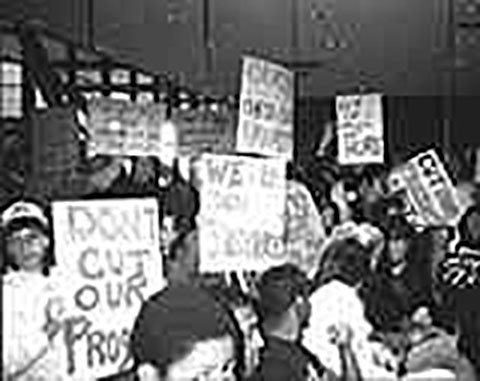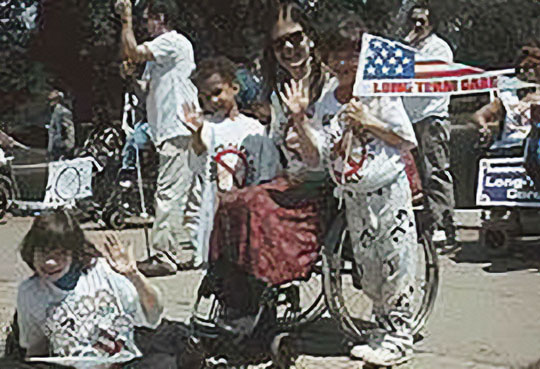"As we are liberated from our own fear, our presence automatically liberates others."
– Nelson Mandela
The Continuing Parents' Movement
The grassroots efforts of the early parents' movement, most notably the Association for Retarded Children, were successful in achieving far-reaching change for persons with disabilities and their families. These parents, acting out of a sense of urgency, challenged public attitudes about their children and educated their legislators about the unfair treatment that their children received in housing, education, and employment.
Many of the early issues of the movement, however, became state and federal functions. Parents were distanced from the front-line of organizing and advocating on behalf of their children. By the 1980s, younger parents were reaping the benefits of these earlier legislative successes and an established system of laws and services that protected their children with disabilities.
For many younger parents of children with disabilities, the choice has not been to join existing organizations, but rather to become educated and advocate on behalf of their children. With many basic services in place, the role of the parent has shifted from fighting for basic rights to ensuring that their local communities honor existing rights and provide the individual services required.
Older parents are being encouraged to recognize that as their sons and daughters become adults, they are entitled to make their own decisions and live as independently as possible.

The 1950s saw people with disabilities as "eternal children." The 1960s and 1970s were a time of better understanding and awareness of people with disabilities. By the 1980s, the self-advocacy movement was underway. People with disabilities were organizing locally, nationally, and even internationally-proclaiming "We are People First!" Just as parents had fought to assume the power once held only by professionals, individuals with disabilities were now demanding to be heard.
The parents' movement of today listens to self-advocates, allows their children to make their own mistakes, keeps their sons and daughters at the center of any plans that affect their lives, and encourages self determination.
As Gunnar Dybwad has noted, "It is normal to be different." Disability is a natural part of the human condition. We may find new names for it, but there will always be people who are treated unequally because they are perceived as different. The continued efforts of parents, professionals, and self-advocates will undoubtedly make the future brighter.

